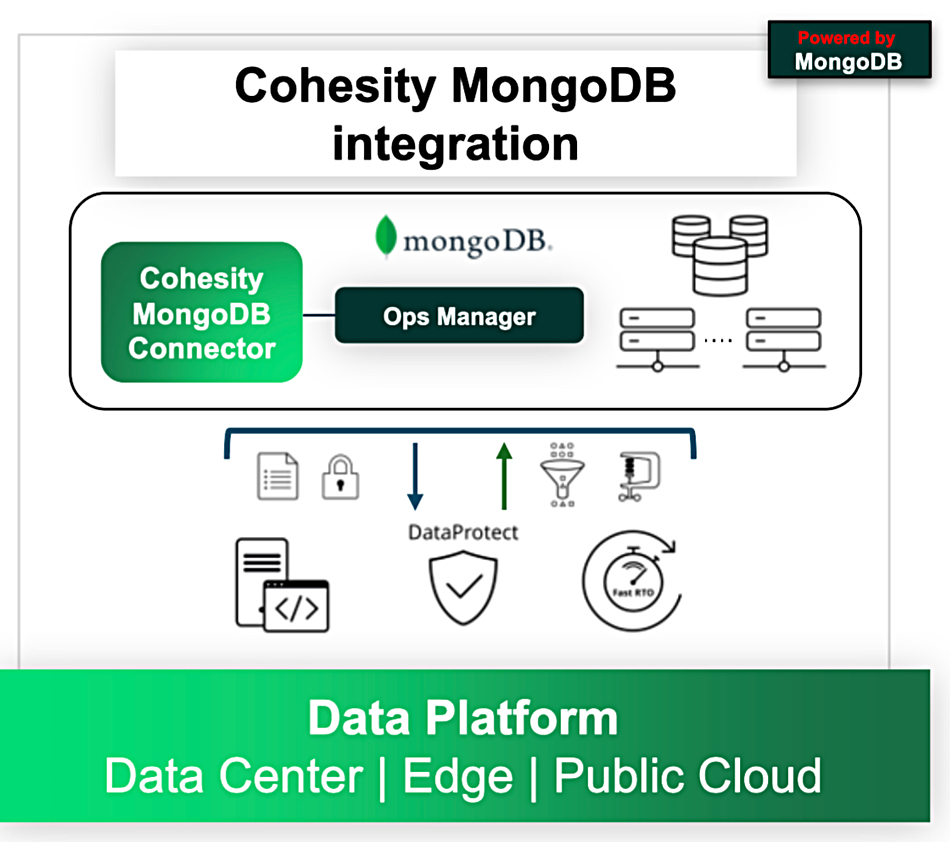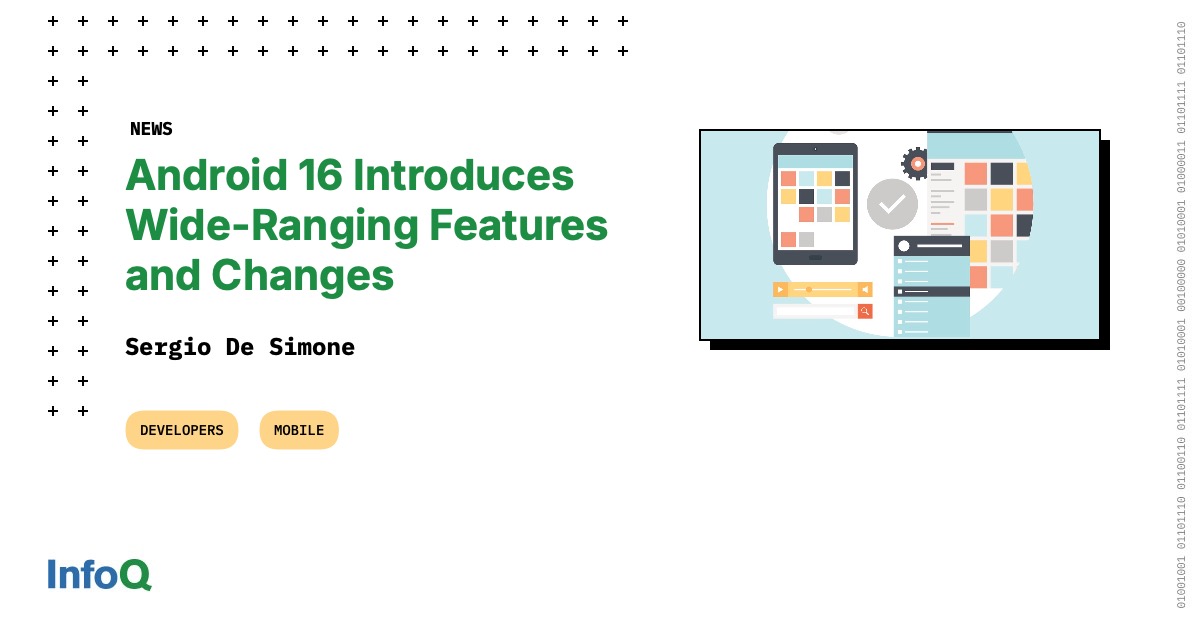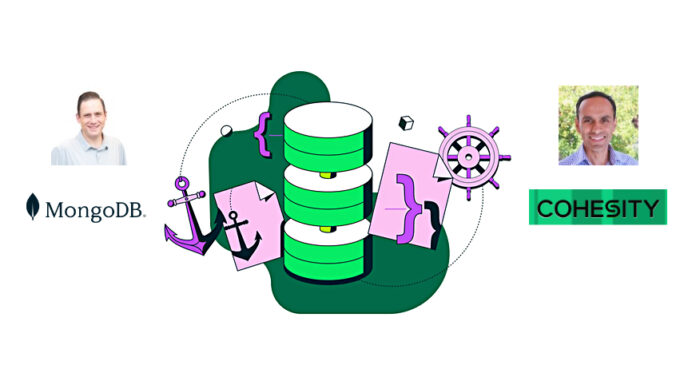Month: June 2025
TC39 Advances Nine JavaScript Proposals, Including Array.fromAsync, Error.isError, and using

MMS • Bruno Couriol

The Ecma Technical Committee 39 (TC39), the body responsible for the evolution of JavaScript (ECMAScript), recently advanced nine proposals through its stage process, with three new language features becoming part of the standard: Array.fromAsync, Error.isError, and explicit resource management with using.
Array.fromAsync is a utility for creating arrays from asynchronous iterables. This simplifies collecting data from sources like asynchronous generators or streams, eliminating the need for manual for await...of loops.
The feature explainer provides the following real-world example from the httptransfer module:
async function toArray(items) {
const result = [];
for await (const item of items) {
result.push(item);
}
return result;
}
it('empty-pipeline', async () => {
const pipeline = new Pipeline();
const result = await toArray(
pipeline.execute(
[ 1, 2, 3, 4, 5 ]));
assert.deepStrictEqual(
result,
[ 1, 2, 3, 4, 5 ],
);
});
With the new syntax, this becomes:
it('empty-pipeline', async () => {
const pipeline = new Pipeline();
const result = await Array.fromAsync(
pipeline.execute(
[ 1, 2, 3, 4, 5 ]));
assert.deepStrictEqual(
result,
[ 1, 2, 3, 4, 5 ],
);
});
The Error.isError() method also advances to Stage 4, providing a reliable way to check if a value is an error instance. The alternative instanceof Error was considered unreliable because it will provide a false negative with a cross-realm (e.g., from an iframe, or node’s vm modules) Error instance.
Another proposal reaching Stage 4 is Explicit Resource Management, introducing a using declaration for managing resources like files or network connections that need explicit cleanup. This proposal is motivated in particular by inconsistent patterns for resource management: iterator.return() for ECMAScript Iterators, reader.releaseLock() for WHATWG Stream Readers, handle.close() for NodeJS FileHandles, and more.
There are also several footguns that the proposal alleviates. For instance, when managing multiple resources:
const a = ...;
const b = ...;
try {
...
}
finally {
a.close();
b.close();
}
Import Attributes (formerly Import Assertions) advances to Stage 3. This feature allows developers to add metadata to import declarations to provide information about the expected type of the module, such as JSON or CSS.
Other proposals moving forward at various stages include Promise.try, aimed at simplifying error handling in promise chains, RegExp.escape for safely escaping strings within regular expressions, and more. Developers may review the full list in a blog article online.
TC39 is the committee that evolves JavaScript. Its members include, among others, all major browser vendors. Each proposal for an ECMAScript feature goes through the following maturity stages:
- Stage 0: Strawman
- Stage 1: Proposal
- Stage 2: Draft
- Stage 3: Candidate
- Stage 4: Finished
A feature will be included in the standard once its proposal has reached stage 4 and thus can be used safely. Browser support may however lag behind adoption of the features in the standard.

MMS • RSS
Sowell Financial Services LLC purchased a new stake in shares of MongoDB, Inc. (NASDAQ:MDB – Free Report) in the 1st quarter, according to its most recent Form 13F filing with the Securities and Exchange Commission (SEC). The institutional investor purchased 1,502 shares of the company’s stock, valued at approximately $263,000.
Other large investors have also recently bought and sold shares of the company. Strategic Investment Solutions Inc. IL acquired a new position in MongoDB during the fourth quarter valued at approximately $29,000. NCP Inc. acquired a new stake in shares of MongoDB in the fourth quarter valued at approximately $35,000. Coppell Advisory Solutions LLC lifted its position in shares of MongoDB by 364.0% in the fourth quarter. Coppell Advisory Solutions LLC now owns 232 shares of the company’s stock valued at $54,000 after buying an additional 182 shares during the last quarter. Smartleaf Asset Management LLC lifted its position in shares of MongoDB by 56.8% in the fourth quarter. Smartleaf Asset Management LLC now owns 370 shares of the company’s stock valued at $87,000 after buying an additional 134 shares during the last quarter. Finally, J.Safra Asset Management Corp lifted its position in shares of MongoDB by 72.0% in the fourth quarter. J.Safra Asset Management Corp now owns 387 shares of the company’s stock valued at $91,000 after buying an additional 162 shares during the last quarter. 89.29% of the stock is owned by institutional investors and hedge funds.
Analysts Set New Price Targets
A number of analysts have recently issued reports on the company. Piper Sandler raised their price objective on MongoDB from $200.00 to $275.00 and gave the company an “overweight” rating in a research report on Thursday, June 5th. Oppenheimer cut their price objective on MongoDB from $400.00 to $330.00 and set an “outperform” rating for the company in a research report on Thursday, March 6th. Stifel Nicolaus cut their price objective on MongoDB from $340.00 to $275.00 and set a “buy” rating for the company in a research report on Friday, April 11th. Daiwa Capital Markets assumed coverage on MongoDB in a research report on Tuesday, April 1st. They issued an “outperform” rating and a $202.00 price objective for the company. Finally, KeyCorp cut MongoDB from a “strong-buy” rating to a “hold” rating in a research report on Wednesday, March 5th. Eight research analysts have rated the stock with a hold rating, twenty-four have issued a buy rating and one has issued a strong buy rating to the company. According to MarketBeat.com, MongoDB has a consensus rating of “Moderate Buy” and a consensus target price of $282.47.
View Our Latest Research Report on MongoDB
Insider Buying and Selling at MongoDB
In related news, Director Hope F. Cochran sold 1,174 shares of the company’s stock in a transaction that occurred on Tuesday, June 17th. The stock was sold at an average price of $201.08, for a total transaction of $236,067.92. Following the transaction, the director now directly owns 21,096 shares of the company’s stock, valued at approximately $4,241,983.68. This represents a 5.27% decrease in their position. The transaction was disclosed in a filing with the Securities & Exchange Commission, which can be accessed through the SEC website. Also, CAO Thomas Bull sold 301 shares of the company’s stock in a transaction that occurred on Wednesday, April 2nd. The stock was sold at an average price of $173.25, for a total value of $52,148.25. Following the transaction, the chief accounting officer now directly owns 14,598 shares in the company, valued at approximately $2,529,103.50. This trade represents a 2.02% decrease in their ownership of the stock. The disclosure for this sale can be found here. In the last quarter, insiders have sold 50,382 shares of company stock worth $10,403,807. Insiders own 3.10% of the company’s stock.
MongoDB Price Performance
MDB stock traded down $2.65 during midday trading on Friday, reaching $201.50. 3,609,482 shares of the stock were exchanged, compared to its average volume of 1,963,536. The stock has a market capitalization of $16.46 billion, a PE ratio of -176.75 and a beta of 1.39. MongoDB, Inc. has a 52 week low of $140.78 and a 52 week high of $370.00. The company has a fifty day moving average price of $185.96 and a 200 day moving average price of $221.16.
MongoDB (NASDAQ:MDB – Get Free Report) last issued its quarterly earnings data on Wednesday, June 4th. The company reported $1.00 earnings per share for the quarter, topping analysts’ consensus estimates of $0.65 by $0.35. MongoDB had a negative return on equity of 3.16% and a negative net margin of 4.09%. The business had revenue of $549.01 million for the quarter, compared to analyst estimates of $527.49 million. During the same quarter in the previous year, the company posted $0.51 EPS. MongoDB’s quarterly revenue was up 21.8% compared to the same quarter last year. As a group, analysts anticipate that MongoDB, Inc. will post -1.78 earnings per share for the current fiscal year.
About MongoDB
MongoDB, Inc, together with its subsidiaries, provides general purpose database platform worldwide. The company provides MongoDB Atlas, a hosted multi-cloud database-as-a-service solution; MongoDB Enterprise Advanced, a commercial database server for enterprise customers to run in the cloud, on-premises, or in a hybrid environment; and Community Server, a free-to-download version of its database, which includes the functionality that developers need to get started with MongoDB.
Recommended Stories
Before you consider MongoDB, you’ll want to hear this.
MarketBeat keeps track of Wall Street’s top-rated and best performing research analysts and the stocks they recommend to their clients on a daily basis. MarketBeat has identified the five stocks that top analysts are quietly whispering to their clients to buy now before the broader market catches on… and MongoDB wasn’t on the list.
While MongoDB currently has a Moderate Buy rating among analysts, top-rated analysts believe these five stocks are better buys.

Discover the 10 Best High-Yield Dividend Stocks for 2025 and secure reliable income in uncertain markets. Download the report now to identify top dividend payers and avoid common yield traps.
Couchbase jumps 28% after agreeing to be acquired for $24.50 per share – Yahoo Finance

MMS • RSS
Shares of Couchbase (BASE) have jumped $5.40, or 28.5%, to $24.33 after the company announced a definitive agreement to be acquired by Haveli Investments for $24.50 per share in an all-cash transaction valued at approximately $1.5B. Some other names in the cloud-based database platforms, NoSQL database, data storage, an infrastructure software space include MongoDB (MDB), DigitalOcean (DOCN), Elastic (ESTC) and Datadog (DDOG).
Published first on TheFly – the ultimate source for real-time, market-moving breaking financial news. >;elm:context_link;itc:0;sec:content-canvas” class=”link “>Try Now>>
Read More on BASE:

MMS • RSS
Cohesity is getting closer to MongoDB by providing more advanced performance and control capabilities for backup and recovery of MongoDB databases.
Cyber resilience supplier Cohesity says it’s among the first data protection software providers to deliver MongoDB workload protection through the MongoDB Third Party Backup Ops Manager API with its DataProtect offering. Rubrik also supports this API.
Document database supplier MongoDB produces one of the top five NoSQL databases and has a massive user community. It is a publicly owned business that earned revenues of $2 billion in fiscal 2025 and competes against traditional relational database heavyweights like Oracle and IBM. MongoDB sells both an on-premises version of its database and a cloud version, called Atlas, which is sold through the AWS, Azure, and GCP clouds.

Vasu Murthy, Cohesity SVP and chief product officer, stated: “With ransomware attacks now commonplace, cyber resilience is a strategic priority for all organizations. This is particularly true of large enterprises, which have a very low tolerance for risk. Downtime for any reason can mean millions of dollars and massive reputational damage. As trusted providers for many of the world’s largest companies, Cohesity and MongoDB are working together to strengthen our customers’ ability to bounce back fast.”
Cohesity said its DataProtect-MongoDB integration, now generally available, features:
- Parallel data streams to enable billions of objects to be processed instantaneously.
- Cohesity’s backups get customers’ MongoDB databases back online 4x faster than traditional methods.
- A scale-out architecture providing petabyte-sized support on a single platform. Customers can reduce their data footprint with global, variable-length deduplication and compression.
- Immutable write once, read many (WORM) storage, data encryption in flight and at rest, continuous data protection, secure SSL authentication, and a multi-layer defense posture based on Zero Trust security principles.
- Business continuity and redundancy with protection of replica sets and sharded clusters with flexible secondary, primary, or fixed preferred backup nodes – enabling continuous availability and failover readiness. Customers can achieve stricter SLAs (both RPOs and RTOs) and eliminate data loss in high-velocity environments.
- Support for sharded and Replica Set deployments.
- Application-consistent backups across complex MongoDB deployments through tightly integrated snapshot orchestration.
- Disaster recovery with restoration of MongoDB clusters in-place or to new environments following failures or ransomware events.
- Safe evaluation of performance enhancements or upgrades on alternate hardware with no production downtime.
- Seamless refreshment of development environments using out-of-place recovery from clean, consistent MongoDB backups.
A Cohesity blog says the integrated DataProtect-MongoDB offering “is designed for enterprises with large-scale, mission-critical MongoDB environments – think global banks, financial services firms, and Fortune 500 companies.”

It “auto-discovers MongoDB Ops Manager (OM) objects, enabling a frictionless and intuitive user experience. It also fully supports OM instances running in High Availability (HA) mode and with SSL encryption – ensuring secure, resilient protection for even the most demanding environments.”

MongoDB’s SVP of Product Management, Benjamin Cefalo, said: “As the leading document database for modern applications, MongoDB empowers organizations to build, scale, and innovate faster. Our collaboration with Cohesity reinforces that mission by helping customers protect their data with robust, enterprise-grade resilience – without compromising the agility and performance developers expect from our platform.”

MMS • Robert Krzaczynski
AlphaWrite is a new framework designed to enhance creative writing with structure and measurable improvements. Developed by Toby Simonds, it employs an evolutionary process to iteratively boost storytelling quality during inference.
Creative generation has long been a challenge for large language models (LLMs), not due to a lack of fluency, but because of the difficulty in evaluating subjective qualities such as character development, emotional impact, and narrative cohesion. AlphaWrite addresses this by borrowing ideas from evolutionary algorithms and systems like AlphaEvolve, applying them to story generation.
The system operates in iterative cycles. It first generates a broad population of diverse stories, varying in author style and theme. Then, an LLM-based judge conducts pairwise comparisons using a detailed narrative quality rubric and Elo rating system. Top-performing stories are selected to spawn variants with guided improvements in structure, dialogue, or prose, among other dimensions. This process is repeated across generations, aiming to refine stories over time.
Source: tobysimonds.com
As Toby Simonds, a creator of AlphaWrite, shared on X:
The magic is in the evolutionary pressure. Stories don’t just get generated once – they compete, mutate, and improve across generations. Top performers become ‘parents’ for the next generation, while weak stories get replaced by promising variants.
Early experiments using Llama 3.1 8B suggest notable gains. Stories produced by AlphaWrite were preferred 72% of the time over initial single-shot generations and 62% over stories created through sequential prompting, both statistically significant. The system also supports recursive improvement: refined outputs are distilled into the base model, which can then undergo another round of evolution.
Source: tobysimonds.com
While the results are promising, not everyone welcomes the development. One user on Hacker News commented:
If there is something that I would like AI to never touch, it’s that. Please stop making the world worse.
In response, another user added:
Not everyone shares your same worldview… You don’t have to participate; ignore AI-generated or AI-assisted content… But you also don’t have to devalue and dismiss the interests of others.
These differing reactions reflect broader cultural tensions around AI’s role in creative domains—whether it enhances or erodes human expression. The AlphaWrite team acknowledges that evaluating story quality remains subjective and warns of risks like prompt bias and creative convergence.
Nonetheless, AlphaWrite’s potential reaches beyond fiction. The authors note that the system helped draft parts of their paper and could be adapted to technical writing, marketing, and academic content. With suitable rubrics, the method could be applied to optimize specific writing tasks or even to improve foundation models themselves.
The code is available in the AlphaWrite GitHub repository for developers and researchers to explore.

MMS • Mark Silvester

Docker has introduced a new range of security-focused base images designed for production use, aiming to reduce vulnerabilities and support secure software supply chains across containerised applications.
Docker Hardened Images (DHI) are a curated set of minimal images built from source using a distroless approach. By removing shells, package managers, and other unnecessary components, the images are designed to reduce the attack surface of containerised workloads significantly.
According to Docker, the hardened images reduce the vulnerability footprint by up to 95% compared to traditional base images. Each image is maintained with automated patching and ongoing security updates, aiming for a near-zero number of known CVEs. Critical and high-severity vulnerabilities are patched within seven days, backed by a defined service-level agreement.
The hardened images are designed to be drop-in replacements for popular base images, such as Alpine and Debian. Docker has focused on ensuring compatibility with existing Dockerfiles to minimise disruption to build pipelines. A customisation layer allows teams to add their own certificates, packages, and configuration files on top of the secure base.
DHI images also include signed Software Bill of Materials (SBOMs) and provenance metadata, supporting increased transparency and supply chain visibility. These features may be particularly relevant for teams operating in regulated industries or security-sensitive environments, where additional assurance and traceability are valued.
Docker has announced early integration partners, including Microsoft, GitLab, JFrog, NGINX, Sysdig, Wiz, and Sonatype. These collaborations aim to ensure DHI works seamlessly with popular security and CI/CD tooling.
In internal testing, Docker reports that swapping a standard Node.js image for a hardened variant led to a 98% reduction in the number of installed packages and the elimination of known CVEs. The initial catalogue includes hardened images for common runtimes, including Python, Go, and Java.
DHI is now available via Docker Hub, with access determined by Docker’s subscription tiers. The setup documentation and customisation tools are included as part of the release.

MMS • RSS
Covea Finance raised its holdings in shares of MongoDB, Inc. (NASDAQ:MDB – Free Report) by 72.1% in the 1st quarter, according to the company in its most recent disclosure with the Securities & Exchange Commission. The institutional investor owned 28,400 shares of the company’s stock after buying an additional 11,900 shares during the quarter. Covea Finance’s holdings in MongoDB were worth $4,981,000 as of its most recent filing with the Securities & Exchange Commission.
Several other hedge funds and other institutional investors have also added to or reduced their stakes in MDB. Strategic Investment Solutions Inc. IL bought a new stake in MongoDB during the fourth quarter worth about $29,000. NCP Inc. bought a new stake in MongoDB during the fourth quarter worth about $35,000. Coppell Advisory Solutions LLC lifted its stake in MongoDB by 364.0% during the fourth quarter. Coppell Advisory Solutions LLC now owns 232 shares of the company’s stock worth $54,000 after purchasing an additional 182 shares during the last quarter. Smartleaf Asset Management LLC lifted its stake in MongoDB by 56.8% during the fourth quarter. Smartleaf Asset Management LLC now owns 370 shares of the company’s stock worth $87,000 after purchasing an additional 134 shares during the last quarter. Finally, J.Safra Asset Management Corp lifted its stake in MongoDB by 72.0% during the fourth quarter. J.Safra Asset Management Corp now owns 387 shares of the company’s stock worth $91,000 after purchasing an additional 162 shares during the last quarter. 89.29% of the stock is currently owned by hedge funds and other institutional investors.
MongoDB Stock Down 1.3%
Shares of NASDAQ:MDB traded down $2.65 during trading on Friday, hitting $201.50. The stock had a trading volume of 3,609,482 shares, compared to its average volume of 1,967,052. MongoDB, Inc. has a 12 month low of $140.78 and a 12 month high of $370.00. The company has a market capitalization of $16.46 billion, a PE ratio of -176.75 and a beta of 1.39. The firm’s fifty day moving average is $185.18 and its 200 day moving average is $222.83.
MongoDB (NASDAQ:MDB – Get Free Report) last posted its quarterly earnings data on Wednesday, June 4th. The company reported $1.00 earnings per share for the quarter, beating analysts’ consensus estimates of $0.65 by $0.35. MongoDB had a negative return on equity of 3.16% and a negative net margin of 4.09%. The company had revenue of $549.01 million during the quarter, compared to analyst estimates of $527.49 million. During the same quarter last year, the company earned $0.51 EPS. The firm’s revenue for the quarter was up 21.8% on a year-over-year basis. Equities research analysts expect that MongoDB, Inc. will post -1.78 EPS for the current fiscal year.
Insider Activity at MongoDB
In other MongoDB news, insider Cedric Pech sold 1,690 shares of the stock in a transaction on Wednesday, April 2nd. The stock was sold at an average price of $173.26, for a total transaction of $292,809.40. Following the sale, the insider now directly owns 57,634 shares in the company, valued at approximately $9,985,666.84. This trade represents a 2.85% decrease in their position. The sale was disclosed in a document filed with the SEC, which is accessible through this hyperlink. Also, Director Hope F. Cochran sold 1,175 shares of the stock in a transaction on Tuesday, April 1st. The shares were sold at an average price of $174.69, for a total value of $205,260.75. Following the sale, the director now owns 19,333 shares in the company, valued at approximately $3,377,281.77. This represents a 5.73% decrease in their ownership of the stock. The disclosure for this sale can be found here. Insiders sold a total of 50,382 shares of company stock valued at $10,403,807 in the last 90 days. Corporate insiders own 3.10% of the company’s stock.
Wall Street Analysts Forecast Growth
MDB has been the subject of several research analyst reports. Mizuho dropped their price target on MongoDB from $250.00 to $190.00 and set a “neutral” rating for the company in a research note on Tuesday, April 15th. The Goldman Sachs Group dropped their price target on MongoDB from $390.00 to $335.00 and set a “buy” rating for the company in a research note on Thursday, March 6th. Barclays lifted their price target on MongoDB from $252.00 to $270.00 and gave the stock an “overweight” rating in a research note on Thursday, June 5th. Redburn Atlantic upgraded MongoDB from a “sell” rating to a “neutral” rating and set a $170.00 target price for the company in a report on Thursday, April 17th. Finally, Loop Capital cut MongoDB from a “buy” rating to a “hold” rating and dropped their target price for the company from $350.00 to $190.00 in a report on Tuesday, May 20th. Eight research analysts have rated the stock with a hold rating, twenty-four have assigned a buy rating and one has issued a strong buy rating to the company. According to MarketBeat, the stock has a consensus rating of “Moderate Buy” and a consensus price target of $282.47.
Get Our Latest Stock Report on MDB
About MongoDB
MongoDB, Inc, together with its subsidiaries, provides general purpose database platform worldwide. The company provides MongoDB Atlas, a hosted multi-cloud database-as-a-service solution; MongoDB Enterprise Advanced, a commercial database server for enterprise customers to run in the cloud, on-premises, or in a hybrid environment; and Community Server, a free-to-download version of its database, which includes the functionality that developers need to get started with MongoDB.
Further Reading
Before you consider MongoDB, you’ll want to hear this.
MarketBeat keeps track of Wall Street’s top-rated and best performing research analysts and the stocks they recommend to their clients on a daily basis. MarketBeat has identified the five stocks that top analysts are quietly whispering to their clients to buy now before the broader market catches on… and MongoDB wasn’t on the list.
While MongoDB currently has a Moderate Buy rating among analysts, top-rated analysts believe these five stocks are better buys.

Just getting into the stock market? These 10 simple stocks can help beginning investors build long-term wealth without knowing options, technicals, or other advanced strategies.

MMS • Bruno Couriol

A new open-source AI-powered code editor, Void IDE, was recently released in beta, positioning itself as a privacy-focused and free alternative to popular closed-source AI editors like Cursor and GitHub Copilot. Backed by Y Combinator, Void IDE is a fork of Visual Studio Code. While Microsoft recently announced plans to open Source its GitHub Copilot Chat Extension possibly in a few months, the beta release is available now for the community to fiddle with.
The primary motivation behind Void IDE is to address concerns surrounding the privacy and cost associated with proprietary AI coding tools. Closed-source editors may require sending private code data through their backends, raising privacy issues and leading to ongoing subscription costs. While the backend may often keep only embeddings computed from the code, the original code may sometimes be recoverable. As the authors of the paper Mitigating Privacy Risks in LLM Embeddings from Embedding Inversion explain:
The surge in popularity of embedding vector databases in LLMs has been accompanied by significant concerns about privacy leakage. Embedding vector databases are particularly vulnerable to embedding inversion attacks, where adversaries can exploit the embeddings to reverse-engineer and extract sensitive information from the original text data.
Void IDE aims to provide options for keeping developers in control of their data. Void IDE can leverage various Large Language Models (LLMs), supporting direct integrations with services like Claude, GPT, and Gemini, as well as local model hosting via Ollama. This ensures that AI processing can happen locally or via direct API calls, avoiding a third-party middleman.
Void IDE offers a range of AI-centric features familiar to users of tools like Cursor. These include inline code editing, contextual AI chat, and code generation. The editor also features advanced capabilities like file system awareness for codebase-wide context and the ability to view/edit the underlying prompts sent to the AI.
Being a fork from VS Code, Void IDE is able to let its users migrate their themes, key bindings, and settings.
Developers on Hacker News and Reddit expressed interest, particularly regarding its open-source nature and privacy stance. Discussions include comparisons to other AI coding tools and editors. Some developers expressed skepticism about the proliferation of VS Code forks, with others asking why not use an extension instead. The project is actively developed, with the team encouraging contributions from the community to shape its future roadmap.

MMS • RSS
MongoDB, Inc. (NASDAQ:MDB – Get Free Report) Director Hope F. Cochran sold 1,174 shares of the business’s stock in a transaction on Tuesday, June 17th. The shares were sold at an average price of $201.08, for a total transaction of $236,067.92. Following the completion of the sale, the director now directly owns 21,096 shares in the company, valued at $4,241,983.68. This represents a 5.27% decrease in their ownership of the stock. The transaction was disclosed in a filing with the SEC, which can be accessed through this hyperlink.
MongoDB Price Performance
MongoDB stock traded down $2.65 during trading hours on Friday, hitting $201.50. The company had a trading volume of 3,609,482 shares, compared to its average volume of 1,967,052. The firm has a market cap of $16.46 billion, a PE ratio of -176.75 and a beta of 1.39. MongoDB, Inc. has a one year low of $140.78 and a one year high of $370.00. The firm has a 50-day moving average of $185.18 and a 200 day moving average of $222.83.
MongoDB (NASDAQ:MDB – Get Free Report) last announced its earnings results on Wednesday, June 4th. The company reported $1.00 earnings per share (EPS) for the quarter, topping analysts’ consensus estimates of $0.65 by $0.35. MongoDB had a negative net margin of 4.09% and a negative return on equity of 3.16%. The firm had revenue of $549.01 million for the quarter, compared to analyst estimates of $527.49 million. During the same quarter in the prior year, the business posted $0.51 EPS. The business’s revenue was up 21.8% compared to the same quarter last year. As a group, research analysts expect that MongoDB, Inc. will post -1.78 earnings per share for the current year.
Wall Street Analysts Forecast Growth
MDB has been the topic of several research reports. Mizuho cut their price objective on shares of MongoDB from $250.00 to $190.00 and set a “neutral” rating on the stock in a research report on Tuesday, April 15th. Morgan Stanley cut their price objective on shares of MongoDB from $315.00 to $235.00 and set an “overweight” rating on the stock in a research report on Wednesday, April 16th. Citigroup cut their price objective on shares of MongoDB from $430.00 to $330.00 and set a “buy” rating on the stock in a research report on Tuesday, April 1st. Wedbush reissued an “outperform” rating and set a $300.00 price target on shares of MongoDB in a research report on Thursday, June 5th. Finally, Redburn Atlantic raised shares of MongoDB from a “sell” rating to a “neutral” rating and set a $170.00 price target on the stock in a research report on Thursday, April 17th. Eight analysts have rated the stock with a hold rating, twenty-four have issued a buy rating and one has given a strong buy rating to the stock. According to MarketBeat, MongoDB presently has a consensus rating of “Moderate Buy” and an average price target of $282.47.
Get Our Latest Analysis on MongoDB
Institutional Inflows and Outflows
Institutional investors and hedge funds have recently made changes to their positions in the business. Acadian Asset Management LLC boosted its position in shares of MongoDB by 181.8% during the 1st quarter. Acadian Asset Management LLC now owns 562,190 shares of the company’s stock worth $98,586,000 after acquiring an additional 362,705 shares in the last quarter. IFM Investors Pty Ltd boosted its position in shares of MongoDB by 4.3% during the 1st quarter. IFM Investors Pty Ltd now owns 13,796 shares of the company’s stock worth $2,420,000 after acquiring an additional 569 shares in the last quarter. UBS AM A Distinct Business Unit of UBS Asset Management Americas LLC boosted its position in shares of MongoDB by 11.3% during the 1st quarter. UBS AM A Distinct Business Unit of UBS Asset Management Americas LLC now owns 1,271,444 shares of the company’s stock worth $223,011,000 after acquiring an additional 129,451 shares in the last quarter. Woodline Partners LP boosted its position in shares of MongoDB by 30,297.0% during the 1st quarter. Woodline Partners LP now owns 322,208 shares of the company’s stock worth $56,515,000 after acquiring an additional 321,148 shares in the last quarter. Finally, Meiji Yasuda Life Insurance Co boosted its position in shares of MongoDB by 36.1% during the 1st quarter. Meiji Yasuda Life Insurance Co now owns 3,997 shares of the company’s stock worth $701,000 after acquiring an additional 1,060 shares in the last quarter. Institutional investors and hedge funds own 89.29% of the company’s stock.
About MongoDB
MongoDB, Inc, together with its subsidiaries, provides general purpose database platform worldwide. The company provides MongoDB Atlas, a hosted multi-cloud database-as-a-service solution; MongoDB Enterprise Advanced, a commercial database server for enterprise customers to run in the cloud, on-premises, or in a hybrid environment; and Community Server, a free-to-download version of its database, which includes the functionality that developers need to get started with MongoDB.
Featured Articles
This instant news alert was generated by narrative science technology and financial data from MarketBeat in order to provide readers with the fastest and most accurate reporting. This story was reviewed by MarketBeat’s editorial team prior to publication. Please send any questions or comments about this story to contact@marketbeat.com.
Before you consider MongoDB, you’ll want to hear this.
MarketBeat keeps track of Wall Street’s top-rated and best performing research analysts and the stocks they recommend to their clients on a daily basis. MarketBeat has identified the five stocks that top analysts are quietly whispering to their clients to buy now before the broader market catches on… and MongoDB wasn’t on the list.
While MongoDB currently has a Moderate Buy rating among analysts, top-rated analysts believe these five stocks are better buys.

Which stocks are hedge funds and endowments buying in today’s market? Enter your email address and we’ll send you MarketBeat’s list of thirteen stocks that institutional investors are buying now.

MMS • Sergio De Simone

Google has released Android 16, now available for supported Pixel devices. The new release introduces a wide range of new APIs and changes, some of which affect existing apps and require developers to update their code. Material 3 Expressive, the new paradigm for Android user interfaces, is not yet included and will roll out later this year.
Android 16 introduces a wealth of new features and changes across nearly all areas of the OS, from accessibility and connectivity to camera support, privacy, core functionality, security, and more. Notable new behaviors include improved notifications, extended support for full screen apps, advanced protection against USB attacks, desktop-style multitasking, and several enhancements to camera and media capabilities.
Adaptive apps are the default on Android 16 for any “large” device, that is, devices with displays larger than 600dp in both dimensions, such as the inner screens of foldables, tablets, and Chromebooks. The option to restrict an app’s resizability via the manifest is no longer available. For developers, this means adopting good practices to avoid stretched UI components, ensuring the camera works correctly in both orientation, and preserving state across window size changes.
Changes needed to support adaptive apps are also essential for desktop-like multitasking, which is enabled when connecting an Android device to an external monitor. In addition, apps displayed on an external monitor may benefit from more advanced behaviors like allowing multiple instances, support data sharing via drag and drop, support configuration changes, and more.
Android 16 introduces an extended notification system supporting progress-centric notifications, which can be used to denote how a process progresses through multiple states and milestones, such as for ridesharing, delivery, and navigation. The system uses points and segments to visually represent progress. These new features lay out the foundation for the upcoming Live Updates capability.
Google has already scheduled a minor Android 16 update for Q3 and a major feature drop in Q4, which will include the release of Material 3 Expressive. Notably, the current release is the only one that will require updates to existing apps to ensure compatibility with Android 16 devices.
Developers should pay close attention to changes such as new JobScheduler quotas that could stop an app when the developer does not expect it; ART changes potentially crashing apps using reflection, JNI, or accessing Android internals; stronger security against intent redirection attacks; the adoption of 16KB page size; new Bluetooth handling affecting device re-pairing, and more.
As mentioned, Android 16 is currently available exclusively on supported Pixel devices. According to Google, support for third-party models will follow soon. In the meantime, developers can test their apps using the Android emulator in Android Studio to ensure compatibility and expected behavior on Android 16.
